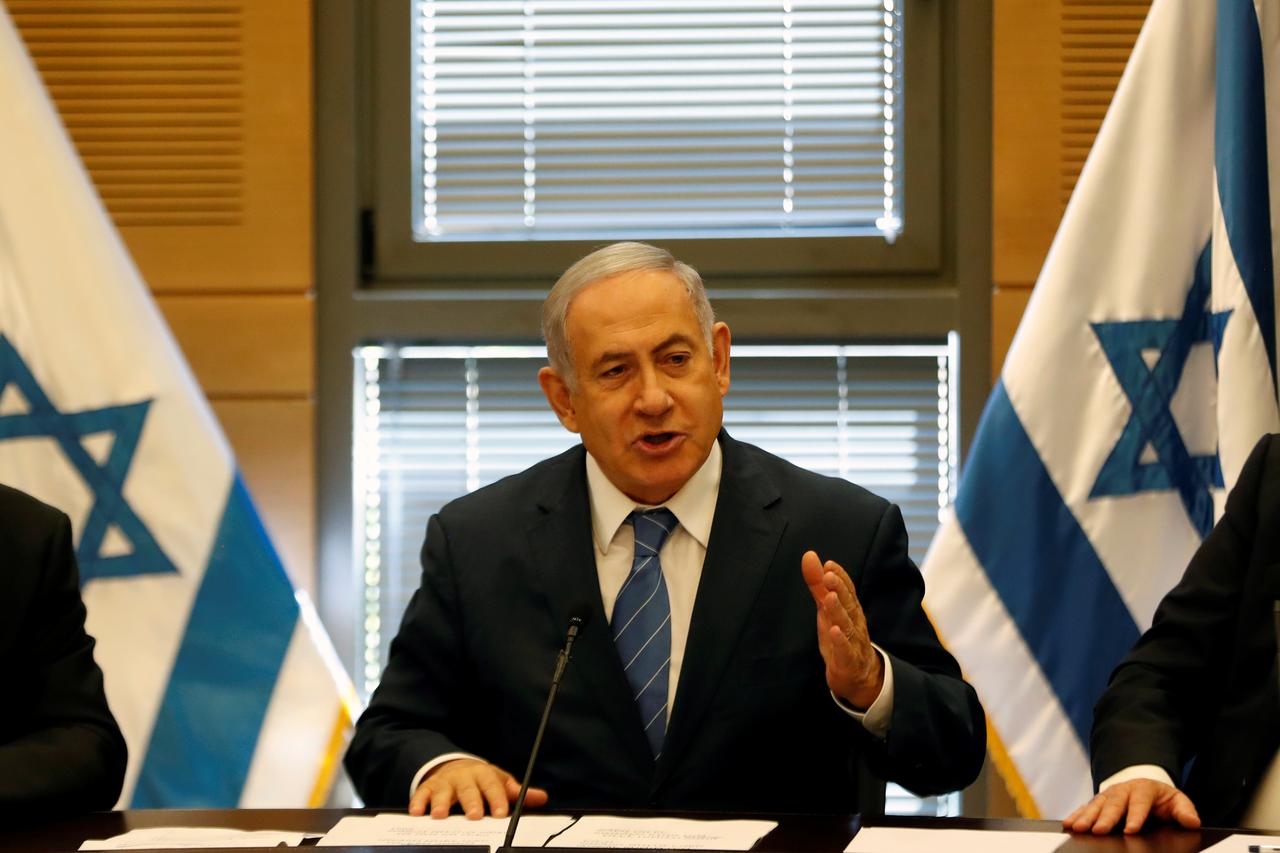
JERUSALEM (Reuters) – Prime Minister Benjamin Netanyahu and his rival Benny Gantz launched negotiations on Monday over a proposed Israeli unity government and a key politician said the focus was on who would lead it first under a rotation deal.
After failing to secure a clear victory in the second election in six months, Netanyahu, Israel’s longest-serving premier, seems to reckon he can stay in power only by sharing it.
Going solo, neither he nor ex-general Gantz have enough support from respective allies for a majority in the 120-member parliament.
Gantz, head of the centrist Blue and White Party, has been publicly resistant to the idea of allying with Netanyahu’s right-wing Likud, citing looming corruption charges against the incumbent.
President Reuven Rivlin, tasked with picking a candidate best-placed to try to form the next governing coalition, has spoken in favor of unity and, on Monday, summoned Netanyahu and Gantz for closed-door talks.
Gantz met earlier with Avigdor Lieberman, a political free agent and likely kingmaker thanks to his eight seats in parliament.
“Happily, the two big parties have internalized the pressing necessity of setting up a unity government with a rotating premiership,” Lieberman said on Facebook.
Concluding their meeting at Rivlin’s Jerusalem office, Netanyahu and Gantz issued a joint statement saying they had discussed “moving forward with unity”. It did not elaborate.
“The entire argument right now is over the question of who will serve first as prime minister, and who second,” said Lieberman.
Such a rotation has a precedent in the 1984-88 unity government of left-leaning Shimon Peres and right-winger Yitzhak Shamir, who took turns as prime minister.
If a power-sharing deal is forged, it could be imperative for Netanyahu to serve as prime minister first should he seek to avoid prosecution.
IMMUNITY
Next month, Israel’s attorney-general will hold a pre-trial hearing on his announced intention to indict the Israeli leader on fraud and bribery charges in three corruption cases. Netanyahu, who denies any wrongdoing, can argue against an indictment at the hearing.
As prime minister, Netanyahu would be under no legal obligation to resign if formal charges are filed. But any other cabinet post might not offer him that protection.
The candidates’ negotiating teams would confer on Tuesday ahead of another possible Rivlin-hosted meeting of Netanyahu and Gantz on Wednesday, the statement said.
Likud won 31 parliament seats to Blue and White’s 33 in Tuesday’s election, near-complete results show.
On paper, Netanyahu has a slim lead over Gantz in building a parliamentary bloc, with pledges of support from 55 members of a right-wing grouping to 54 for Gantz from left-leaning and Arab parties. Both are short of a 61-seat majority.
Netanyahu’s slight edge might move Rivlin to ask him to try to build a narrow coalition if a unity government proves impossible. A nominee gets 28 days to do so, with a possible 14-day extension, before Rivlin can turn to someone else.
Slideshow (6 Images)
Gantz had appeared to have 57 backers but three of the Arab Joint List’s 13 members on Monday withdrew support they had pledged to him a day earlier.
Lieberman, of the far-right Yisrael Beitenu party, wants an alliance with Likud and Blue and White. But he has refused to commit to either Netanyahu or Gantz, citing his own policy differences with Likud’s Jewish ultra-Orthodox allies and Blue and White’s Arab backers.
Netanyahu and Gantz appear close on many important issues, such as relations with the United States, the regional struggle against Iran and the Palestinian conflict.
Gantz, however, has called for a “liberal” administration, political shorthand for one that does not include Netanyahu’s ultra-Orthodox partners. After the election, Netanyahu swiftly signed a new alliance with them.
Any unity deal would likely also force Gantz to address the issue of parliamentary immunity from prosecution that Netanyahu’s supporters have pledged to seek.
By Dan Williams. Additional reporting by Jeffrey Heller; Writing by Dan Williams; Editing by Dan Grebler
Image: Israeli Prime Minister Benjamin Netanyahu delivers a statement to the media at the start of his Likud party faction meeting at the Knesset, Israel’s parliament, in Jerusalem September 23, 2019. REUTERS/Ronen Zvulun




